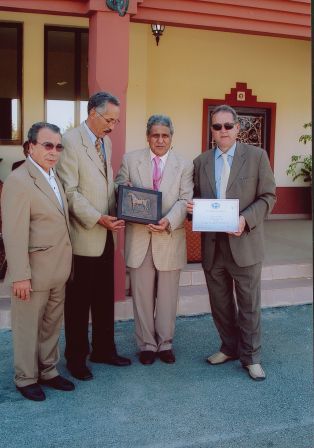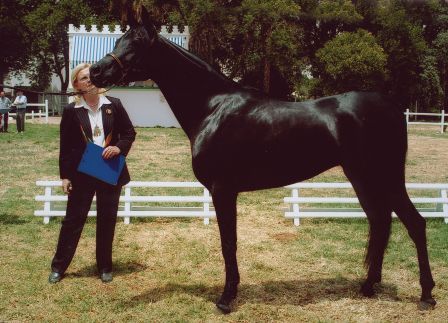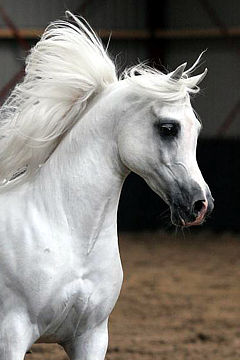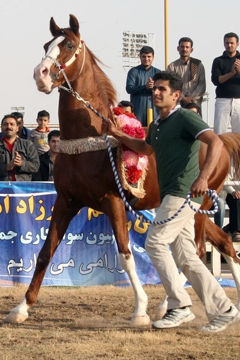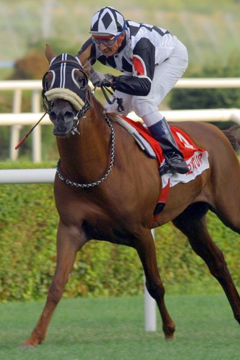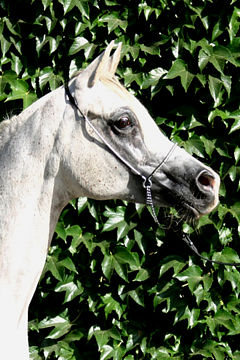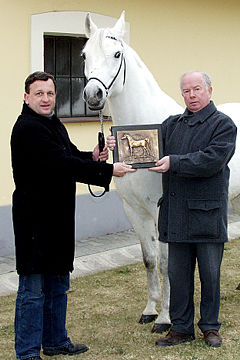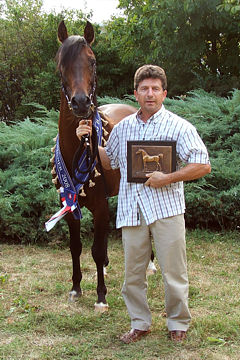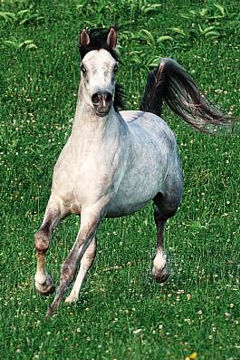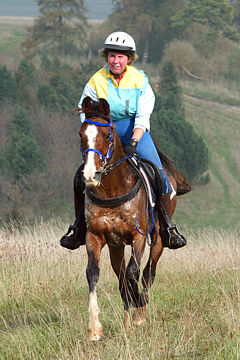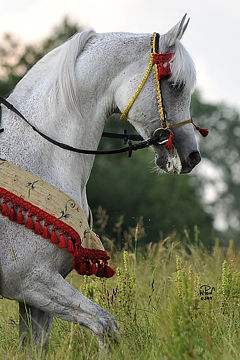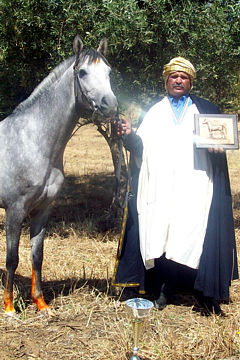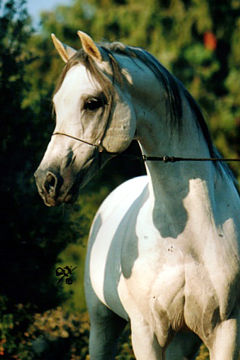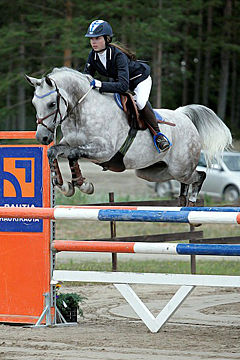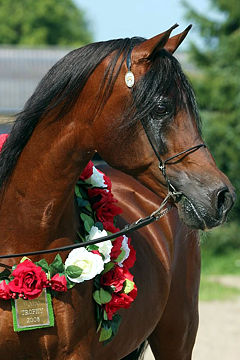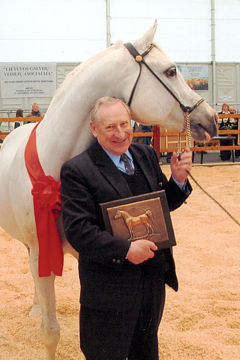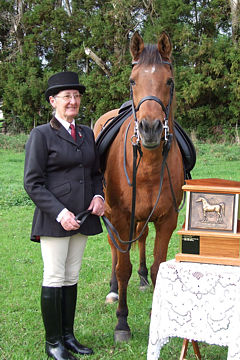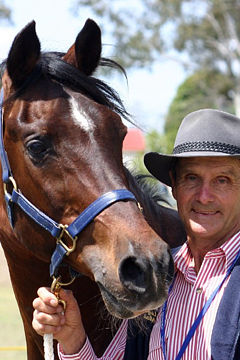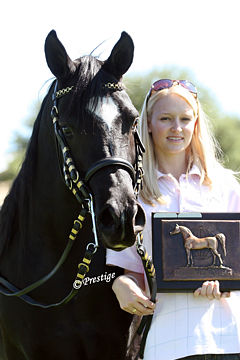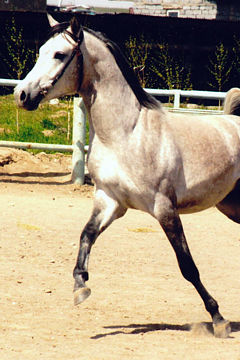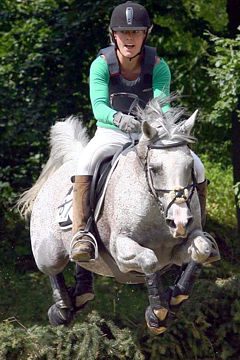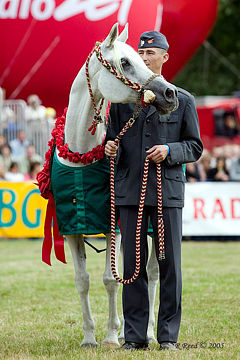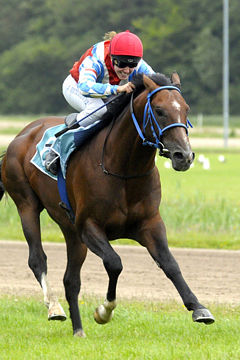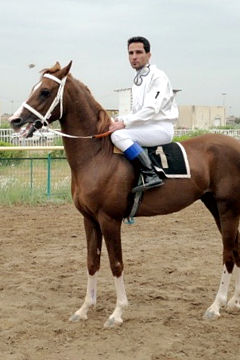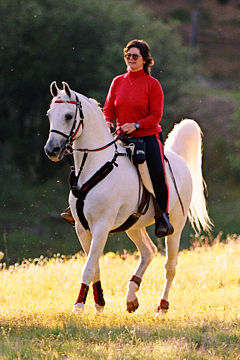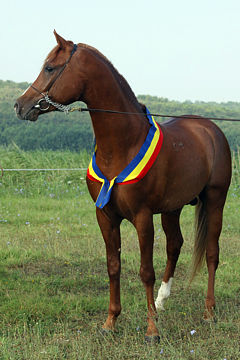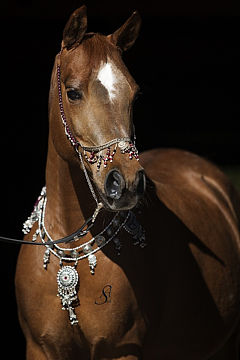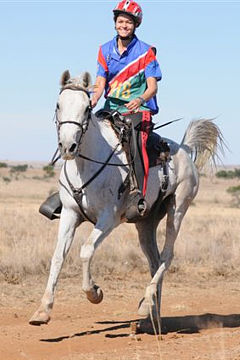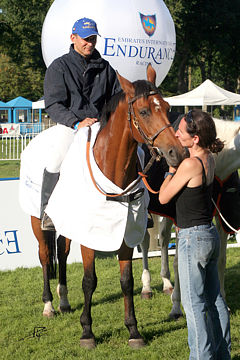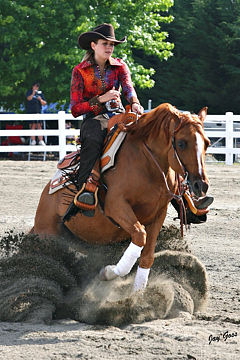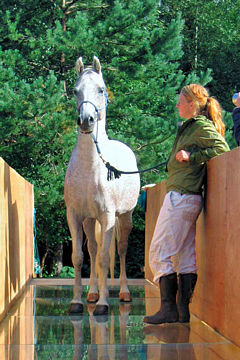![]()
Member Report from Morocco
REPORT MADE AT THE 2019 WAHO CONFERENCE:
Dr. Omar Benazzou, Morocco: Mr. President, Ladies and Gentlemen, Members of the Executive Committee, Delegates and guests. My name is Omar Benazzou, I am the Manager of the National Stud of Morocco and also the Registrar of the Moroccan Arabian Stud Book. Morocco is among the early members of WAHO and we hosted the WAHO General Assembly two times, in 1986 and 1994.
The current stud book is volume number 11 and the next will cover the period from 2018 to 2021. Regarding our Arabian Stud Book statistics, in Morocco we have approximately 70 breeding stallions and 1,200 broodmares. In 2018 we registered 780 horses, imported 95 and exported 10. In Morocco we have two main activities; flat racing and showing. About Arabian racing statistics we have 7 hippodromes in Morocco, the last one opened in Marrakech in 2018. In 2018 we have organized 615 national races and 218 regional races with 4.5 million euros in prize money. We organize also an international race meeting in Casablanca, with 6 international flat races.
Regarding shows, we organized in collaboration with the Royal Association of Arabian Horse Breeders, ARMECPSA, four regional D shows and a National Championship ECAHO affiliated show, one straight Egyptian show and one Breeders’ Cup show. Also in Morocco we organized the Al Jedidiah A show in collaboration with ARMECPSA and Salon Du Cheval Association, and also the Breeders Cup Show sponsored by AHO. The total number of horses shown in 2018 is 1,185 horses.
In other support and development programmes in Morocco, SOREC makes available performance stallions and frozen semen at subsidized prices, giving allowances for every born and registered horse with 1250 euros for every Arabian foal registered in the Moroccan Stud Book. Other activities and training include best practice in breeding, equi-therapy, showing horses etcetera. We also sponsor veterinary schools, research programmes relating to horses and we work in close collaboration and consultation with Breeders Associations, Racing Societies and our Equestrian Federation.
I want to also thank Australia for this organization, this is my first time at a WAHO Conference, I am so happy to be here, and I want to thank Australia for this organization. Thank you very much.
REPORT MADE AT 2017 WAHO CONFERENCE:
Dr. Abdelouahed Maagoul, Morocco: (Translated from Arabic). Thank you Mr. President. In the name of God most gracious, most merciful, the blessings and peace be upon Prophet Mohammed. Mr. President, Members of the Executive Committee, ladies and gentlemen. On behalf of the Moroccan delegation I would like to offer my sincere thanks to the Organising Committee headed His Royal Highness Sheikh Isa Bin Salman Al Khalifa for the hospitality and great welcome.
Horse breeding receives a lot of attention in the Kingdom of Morocco. I am pleased to offer you some statistics concerning the breeding of Arabian horses in the Kingdom of Morocco related to the year 2016. We are currently in the process of issuing the 10th volume of our studbook, which covers the period between 2010 and 2013. The total number of Arabian horses which are registered in our studbook exceeds 6,200. The number of registered foals born in 2016 is 370. The number of mares used for breeding was 750 and the numbers of stallions used for breeding was 215. Our breeding season starts from the beginning of February until the 30th June. The number of imported horses during the same period was 88, the number of exported horses was 8. Also, Morocco has imported 425 straws of frozen semen.
As for the uses of our Arabians, the Société Royale D’Encouragement Du Cheval (SOREC) organises 867 races, of which 215 are Regional, 650 are National and 1 International. The Royal Moroccan Arabian Horse Breeders Association (ARMECPSA), in partnership with SOREC, organises four Regional shows, a National Championship, a Championship for Straight Egyptian Arabian horses, and a Breeders Cup. Arabians are also shown at the major International Horse Fair in El Jadida. It should also be noted that there are other uses for Arabian horses, such as endurance. Finally, I renew my thanks to the organizers from the Kingdom of Bahrain for their warm reception. Thank you for your attention.
REPORT MADE AT 2014 WAHO CONFERENCE:
Morocco: Mister President, Ladies and Gentlemen, I am Doctor Abdelouahed Maagoul, head of the Department of Genetic Improvement and Regulation, at the “Société Royale d’Encouragement du Cheval” (SOREC), and the Manager of Morocco’s Arabian Studbook. I represent the Moroccan delegation, along with my colleagues Doctor Abderrahim Zejjari, from the same department, and Doctor Fdaïl Lahsen, General Secretary of the Moroccan Royal Association of Arabian Horses Breeders.
The history of Morocco is inseparable from the horse that has become an integral part of the material heritage of the Kingdom of Morocco. Today, equine tradition is the backbone of the cultural and religious identity of Morocco. In 2011, the Ministry of Agriculture and Sea Fisheries launched the strategy of equine sector. This aims to promote a sustainable participatory role of the horse in the national economy and make it an engine of economic and social growth. The implementation of this strategy has been entrusted to SOREC which, as part of its mission, ensures the supervision of horseracing societies, supports breeding programmes as a partner of Breeders’ associations, and takes in charge the improvement of our national equestrian infrastructures.
The population of Arabian horses in Morocco is estimated at 5,000, representing 4% of the total horse population in the country. Annual births are about 320 foals per year. Organized and managed by SOREC, horse racing is undoubtedly the most widespread activity for our Arabian horses, with 40% of the total population in training. In the past 4 years, Arabian races increased from 572 to 744 per year, an increase of 30%. In addition to national races, SOREC organizes an international race day, 2 Group 3 races, and 6 Listed races. To our knowledge, Morocco is the second country after Turkey in terms of the number of Arabian horse’s race.
Shows are organized by the Royal Moroccan Association of Arabian Horses breeders (ARMECPSA), in partnership with the SOREC. In total, we have six annual Shows, including an “A” international, and a Breeders Cup, which are organized within the Salon du Cheval d’El Jadida.
As regards other activities, the Moroccan Royal Federation of Equestrian Sports, in partnership with SOREC, works for the development and promotion of endurance which is currently in its starting stages, there are currently 11 events per year. As part of its strategy SOREC undertakes actions including the promotion of the Arabian horse in communicating around major events dedicated to Arabian horse; the supervision of breeders’ associations in genetic improvement policy by importing frozen semen and mares of high genetic value; the encouragement of production by establishing an allowance at the births; promotion of breeding techniques and welfare of horses during the Open Days, held each year before the breeding season.
Since 2002 the parental control, by DNA analysis, is systematic for all horses coming from national breeding. Our Laboratory is an institutional member of ISAG and regularly participates to the comparison tests, with excellent results.
All horses imported or exported into/from Morocco are subject to prior notification to SOREC. Each year, forty Arabian horses are imported, mainly racehorses. This figure showed a significant increase in 2013 to reach a hundred horses, as a result of the increase of the importation of show horses. It should be noted that the registration of imported horses in the Moroccan Stud Book depends on the receipt of the WAHO Export Certificate and the result of the identity control of the horse. Morocco continues to publish the stud book on paper and with electronic support. Volume 8 was published in 2009. The next Volume will be published in March 2015 and will include horses born or imported during the period 2010-2013.
We sincerely hope, Mr. President, that in the future, the WAHO Executive Committee will take some time to think about the revision of the Constitution regarding the point raised this morning about the method of voting on the election of the Executive Committee.
Finally, I would like to thank Qatar for the perfect organization of this conference, for the hospitality and for the warm welcome. Thank you Mister President, ladies and gentlemen, for your attention.
REPORT MADE AT 2011 WAHO CONFERENCE:
Dr. Hicham Debbagh, Morocco: Mr. President, Executive Committee of WAHO, fellow delegates. My name is Dr. Hicham Debbagh, and I am here together with my co-delegate Mr. Arab Dadaoui, the Registrar of the Moroccan Arabian Studbook. We extend our thanks to the Qatar Racing and Equestrian Club and the organizers for hosting this important Conference.
The approximate number of Arabian breeders in Morocco is 270, and we estimate there are 3,200 living Arabian horses. 224 foals were registered in 2010 and 200 in 2011, they are parent verified by DNA. All our horses are microchipped and we issue passports, we also issue UELNs. In the year 2010, there were 475 active broodmares and 93 breeding stallions. We allow the use of artificial insemination and embryo transfer. 12 foals were born from the use of imported semen in 2011. We allow the post-mortem use of semen for 1 year after the death of a stallion. 1 horse was exported to France in 2010 and 3 to France in 2011, these are primarily breeding horses. As regards imports, in 2010 there were 33 and in 2011 there were 44, the imported horses are primarily intended for breeding, particularly broodmares, for racing and for showing.
As regards activities, showing is increasingly popular. We have five ECAHO-affiliated shows each year, including three regional shows, our National Championships and one International ‘B’ Show. Approximately 80 horses take part in each of these events. Racing is the major activity for Arabians with approximately 400 races each year, Morocco is a member of IFAHR. We have 108 regional races, 291 national races and 3 international races. The budget for racing is being increased considerably. Endurance racing is also organized, with approximately 7 events annually held over distances ranging from 40km to 120 km, over varied terrain in different regions of Morocco. Of the 35-40 horses taking part at each ride, some 30% are purebred Arabians. These events are organized through the Royal Moroccan Equestrian Federation. Apart from providing these activities, we also promote the Arabian horse in Morocco with financial incentives to the breeders, for example breedings to stallions standing at the National Studs are free of charge, frozen semen from Group I race winners is made available at a heavily subsidized price, and there is a breeders premium allocated to the prize money for racing.
Finally, I am honoured to inform you that since July of this year the control of the Studbook and the National Studs was officially transferred from the Ministry of Agriculture to the Société Royale D’Encouragement du Cheval, SOREC. SOREC concentrates on the promotion and development of the purebred Arabian horse in Morocco, together with promoting equestrian activities for those horses such as racing and showing. We also work closely with ARMECPSA, the Royal Moroccan Association of Arabian Horse Breeders, which is an Associate Member of WAHO, Dr. Lahsen Fdail is here representing them at this Conference. Thank you for your attention.
REPORT MADE AT 2009 WAHO CONFERENCE:
I am Dr. Mohammed El Kohen from the Moroccan National Studs, I represent the Kingdom of Morocco together with my Colleague Dr. Lahsen Fdail.
The particular modern interest for Arabian horses in Morocco started in the 1970s. In 1982 the Moroccan Stud Book was first approved by WAHO. In 1985, by order of the King of Morocco, the Royal Moroccan Association of Arabian Horse Breeders was created. It started with a handful of members, today it counts more than 200 breeders among its members. Volume 7 of the Moroccan stud book was published in 2007, it covers the period 2002-2005. Volume 8 will be published in 2010.
In 2007 our estimated number of living purebred Arabian horses was 2,000. We recorded 238 births in 2007, and 204 in 2008. In 2007 we imported 15 horses, in 2008 we imported 83 horses primarily for racing. The registration is managed by a specialized computer application, built in partnership with the French National Studs. This allows the production of passports, the management of the stud books, and recording the performances of the horses. As a complement to the identification of horses by markings, we use microchips made to ISO standards. The foals are microchipped by agents of the National Stud, Ministry of Agriculture, at the same time as the markings description is done, before they are weaned. All the foals are parent verified by DNA before registration in the stud book. We allow Artificial Insemination and Embryo Transfer.
Racing is the principal activity in Morocco for Arabian horses, in 2008 there were 284 races with 1,633 horses participating. The races as well as the betting are organized by La Societe Royale d’Encouragement du Cheval. Currently we are setting up a programme for the promotion of the breeding of show horses. I think that economically speaking, for some time to come racing will remain the most important activity for Arabian horses in Morocco. Thank you very much.
REPORT MADE AT 2007 WAHO CONFERENCE:
The Arabian horse has always had great importance in Morocco, which has more than 3,000 registered Arabian horses and we have recently published volume 7 of the stud book.
The number of foals registered in 2006 was 190, we had 379 broodmares and 50 active breeding stallions. We utilize a computer system and database that is really well developed for the registration of Arabian horses. We have adopted the use of microchips for additional identification, starting in 2001. All horses have to be parentage tested before registration, using DNA. We now use a Moroccan laboratory that is ISAG recognized. We also allow Artificial Insemination, the use of which is now increasing a lot in Morocco. We also allow Embryo transfer.
As for international trade, in 2006 we imported 35 horses and exported 10.
As for the activities and events for Arabian horses, we organize 2 shows each year, where more than 150 horses and more than 100 breeders participate. We also have experienced an increase in the number of races for Arabians in Morocco, over the past few years we witnessed good participation and popularity for this sport and now we have more than 270 races, 2 of which are international and there are prizes of $100,000 for each of these international races.
In the year 2007, Morocco registered 238 foals, representing a significant increase on the previous year. 15 horses were imported from France, none were exported.





